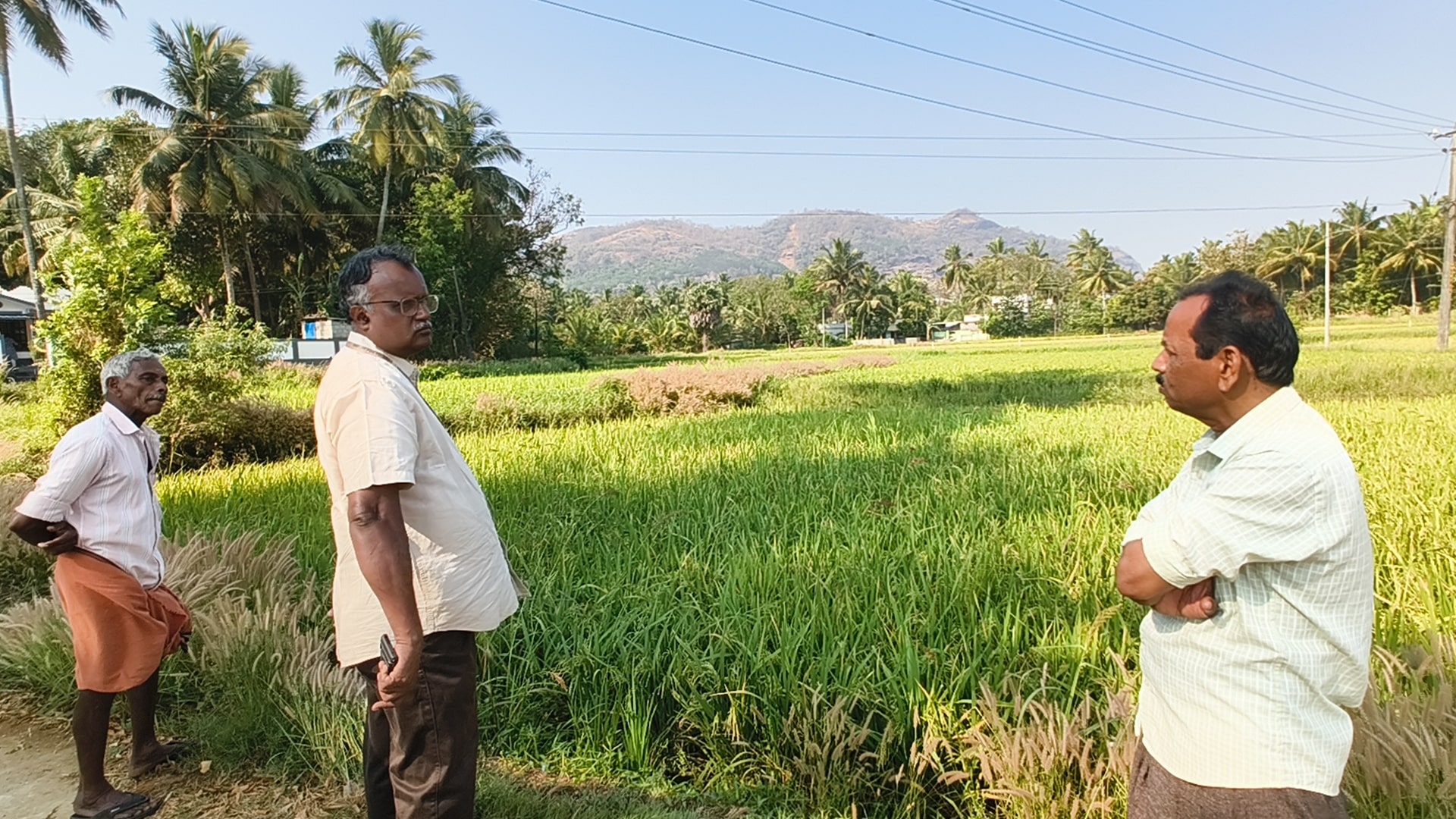
2025-02-21
A field visit was conducted on February 21, 2025, to Koorodmann Padashekhara Samithi and Vallakkunnam Padashekhara Samithi in Alathur, Palakkad district, as part of the ongoing project to assess the impact of climate change on paddy cultivation. The visit was attended by Shri Gowthaman K.D., Secretary of Koorodmann Padashekhara Samithi, along with prominent farmers Shri Unnikuttan, Shri Muthu, and Shri Manoj, Secretary of Vallakkunnam Padashekhara Samithi.
At the time of the visit, the paddy crops were 80–90 days old, with grains developing and maturing. Farmers expressed under Koorodmann Padashekhara Samithi showed satisfaction with this year’s crop growth, which showed promising results. The harvest is expected by mid-March. Most farmers had sown the TPS 5 variety, a short, bold, white rice known for its non-lodging properties and moderate resistance to pests and diseases. However, fields under Vallakkunnam Padashekhara Samithi faced infestation from Echinochloa species, a common weed in rice cultivation. Additionally, some chaffy white grains were observed in the fields.
Sustainable Practices and Challenges
Farmers from Koorodmann Padashekhara Samithi reported successful pest management using Tricho cards, eliminating the need for chemical pesticides. Drone spraying of micronutrients also proved effective in boosting plant growth. However, irrigation challenges persist, particularly for the second crop, which relies on canal irrigation from the Malampuzha project. Due to the lack of proper infrastructure, water flows through multiple fields before reaching the distant ones, causing delays in drainage for fields ready for harvest.
Shri Gowthaman highlighted the ecological significance of paddy fields, emphasizing their role as natural wetlands that store water, recharge groundwater, and provide habitats for diverse organisms. The visit also included an assessment of pest impact, chemical usage, and climate change effects on the crop.
Project and Team Involvement
The field visit was led by Dr. Punnen Kurian, Secretary, TIES; Habi Sherin, Project Coordinator; and Aditya Sabu, Project Assistant. It was conducted as part of a NABARD-funded project, “Study on the Impact of Climate Change on Rice Cultivation in Kerala and the Development of Adaptation and Mitigation Strategies.” The study aims to develop effective, climate-resilient agricultural strategies for Kerala, with Vallakkunnam Padashekhara Samithi selected as the conventional paddy field for a comparative analysis. This visit provided valuable insights into ongoing challenges and innovative solutions in rice cultivation, reinforcing the need for sustainable agricultural practices to combat climate change.



